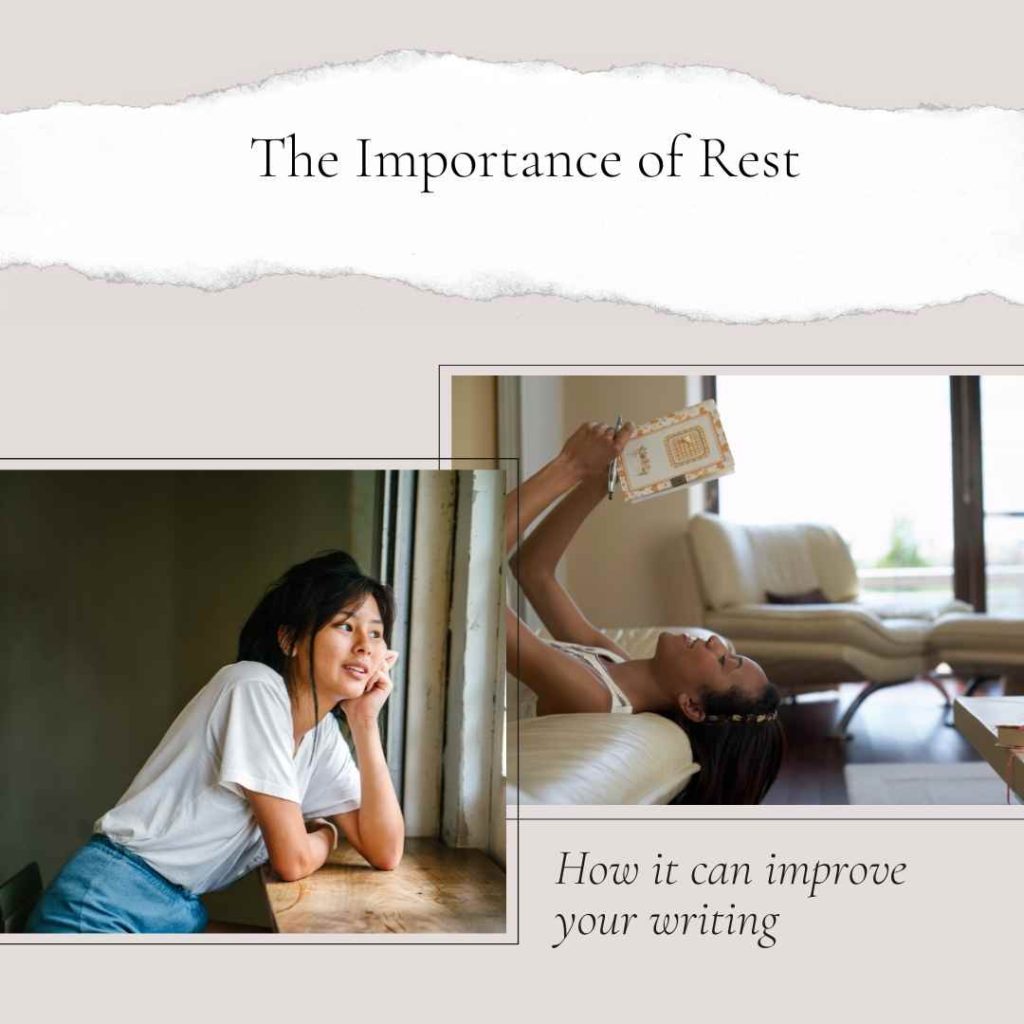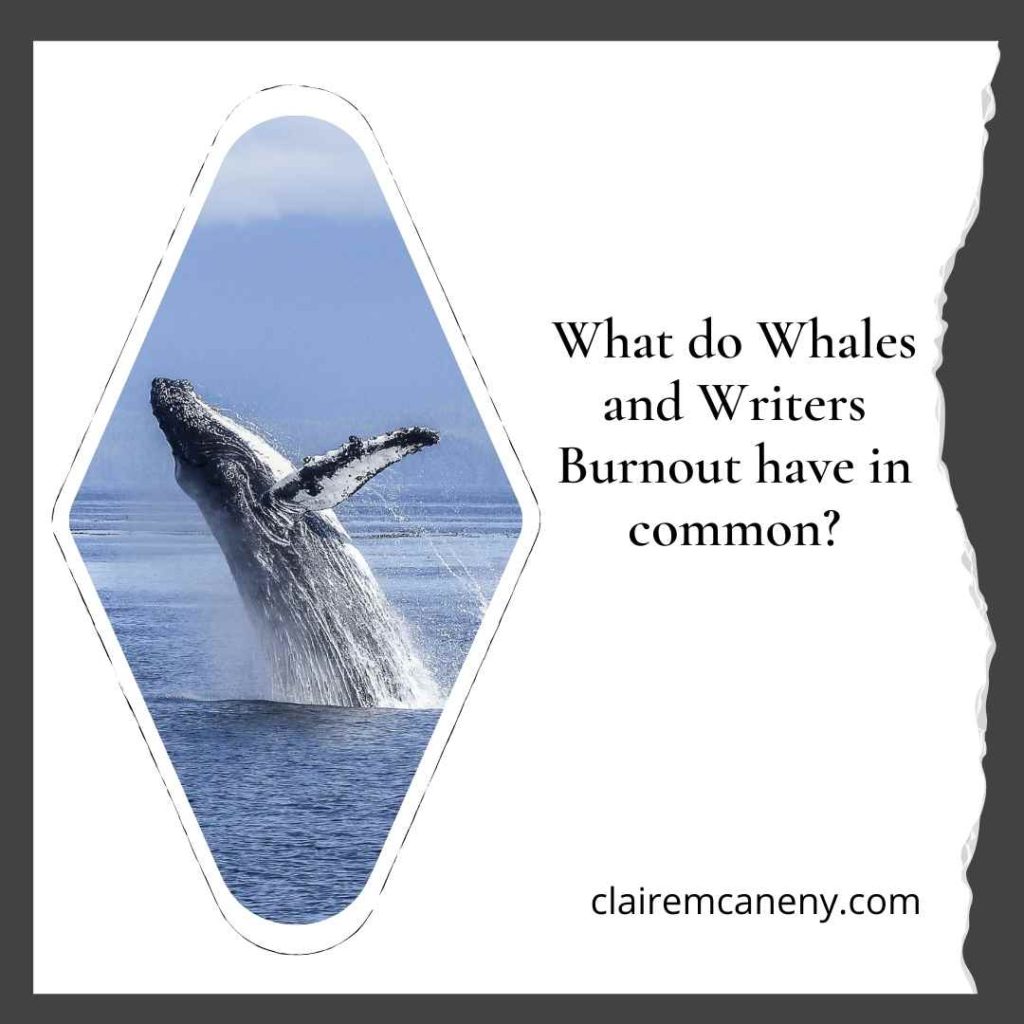An unexpected way to improve your writing

Taking a break can be hard. Especially if you are feeling the pressure to get more writing done. But rest is a very important step in being able to write.
In our society the hustle and grind culture is strong. It can be hard not to feel like you should be writing every time you have 5 minutes. When you tell someone that you write they often ask ‘when is the book out?’ When can I buy your book in a shop? So then you feel like you should be doing even more writing.
The impression is that writing more will get the novel finished. But that does not take into consideration how much emotional and mental effort goes into writing. Or that our brain needs energy to be mentally alert. It also needs rest.
Alan de Botton said that ‘there is a real relationship between the capacity to endure suffering and the capacity to do great things’. Emm, no thanks. I have suffered when I was working with a small baby that did not sleep, no naps after the age of one either. I don’t recommend it. I did not benefit from it. I was definitely not at my strongest creatively.
Writer Burnout
Pushing past your limits and persevering can get one book finished. But at what cost? If you would like to build a full time writing job then you will need to write more than one book. It is usually after the 5th or 6th book that an author starts to see profit. If you think of the big earners like Stephen King they have a lot of books and many of them are still writing more. So, working on a sustainable writing routine is an investment in your future writing.
But how would you know if you were approaching burnout?
Chrys Fey has written a book about burnout for writers. She lists overworking yourself and setting unachievable goals as some of the contributory factors.
The following are the symptoms – sense of failure, sadness, anger or irritability, feeling drained and fatigued, insomnia.
Burnout has recently been added to the International Classification of Diseases as an occupational phenomenon.
Authors that suffered from burnout

George Orwell struggled with physical health problems but he also pushed himself with his writing and suffered from writers burnout and stress. Orwell even describes writing as ‘a horrible exhausting struggle, like a long bout of painful illness’ link in his book Why I Write.
Hermann Melville suffered from anxiety, eye spasms and debilitating back pain after he wrote Moby Dick.
Ayn Rand used Benzedrine to help her finish The Fountainhead on time and after it was turned into the publisher her doctor ‘diagnosed her as close to a nervous breakdown and advised her to take two weeks complete rest.’
Why rest is important
Creativity only happens when our brains are relaxed. Stressed brains are not creative brains. In order to combat stress we need to make time for relaxation. Stepping away from our desks and experiencing the world around allows our mind to wander which is also good for relaxation.
We also need to be still enough to daydream. I wrote more about creativity here.
For physical health we need to visit a supermarket and buy food that will give us fuel to keep going. Our physical health also needs sleep for us to be productive humans. Our organs, of which our brain is one, are designed to increase the production of new cells while we sleep. There is evidence that lack of sleep will make us sick. So, if you push yourself too hard, illness will force you to slow down and stop.

Focus on quality over quantity
Many writers only write for a few hours a day or until they meet their word count for the day. Stephen King only writes between 7.30am and midday.
Ask yourself why do you want to write? Is it so that you can spend 20 hours a day chained to the keyboard?
Posture is important
The reason there is a recommended way of sitting at a desk is because it optimises the way the body works. This means that it is less tiring to sit properly than it is to slouch.Which feels odd when you are tired and don’t have the energy to sit up properly. As a bonus, when you keep your spine straight you need to engage your stomach muscles. So, sitting properly brings you a step closer to a 6 pack.
But it also prevents aches and pains. Especially the pains that make writing difficult. A break gives you time to exercise away from the keyboard. It also gives you a chance to be out and about in nature which increases your creativity.
Only sit at your desk when you are ready to write.
I am borrowing this one from sleep advice. Where it is recommended to only sleep in your bed so that your body only associates the bed with sleep and not watching television, working etc.
Thinking time can be done while you are doing any mindless task like working in the garden, cleaning the house. This is a great way to free up the part of your brain that is creative. Plus you get some of the maintenance activities that a house requires done.
Learning about writing
Listening to podcasts or even reading books about the craft of writing. But especially reading books in the genre that you want to write in are all an important part of writing and developing your writing. I hope you want to write because you enjoy reading, so reading should be a restful activity. Plus if you are reading a physical book it will give your eyes a break from the screen.
Plan your rest
Don’t wait until you are totally burned out. When your brain is so fried it can’t even think of something creative for dinner. Or appreciate witty writing in a film.
When you plan your rest it has a start time but it also has an end time. So, you know you will get back to the writing. You don’t want writing to constantly be an uphill slog. There should be enjoyment for some part of it.
Further Reading
Henriette Laziaridis has a great article where she compares writing to training – HERE
Ryan J. Peloton makes a very compelling case for taking at least one day off from writing – HERE
Carol Tice has some advice for establishing a rest habit which is an interesting and different way of looking at the writing routine – HERE